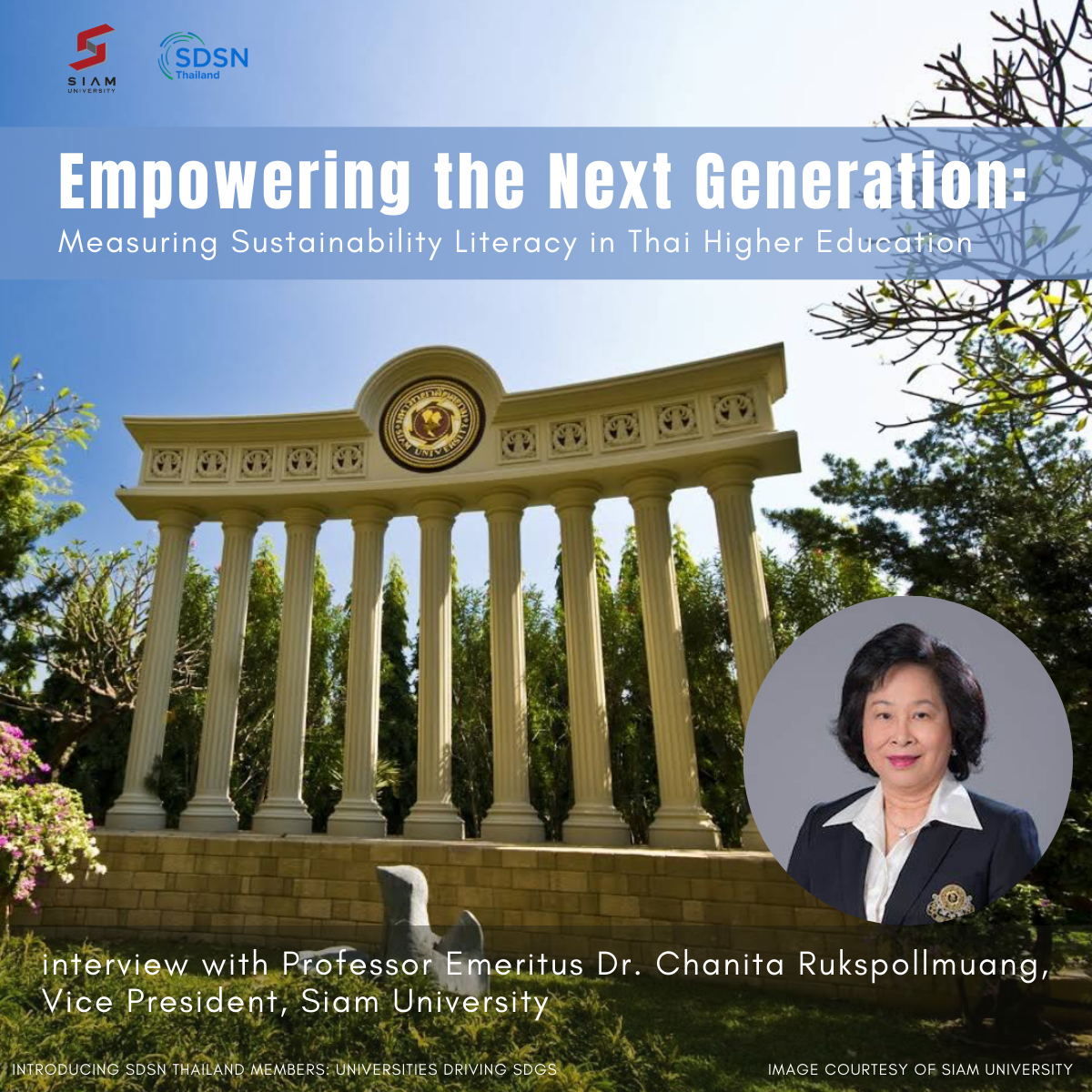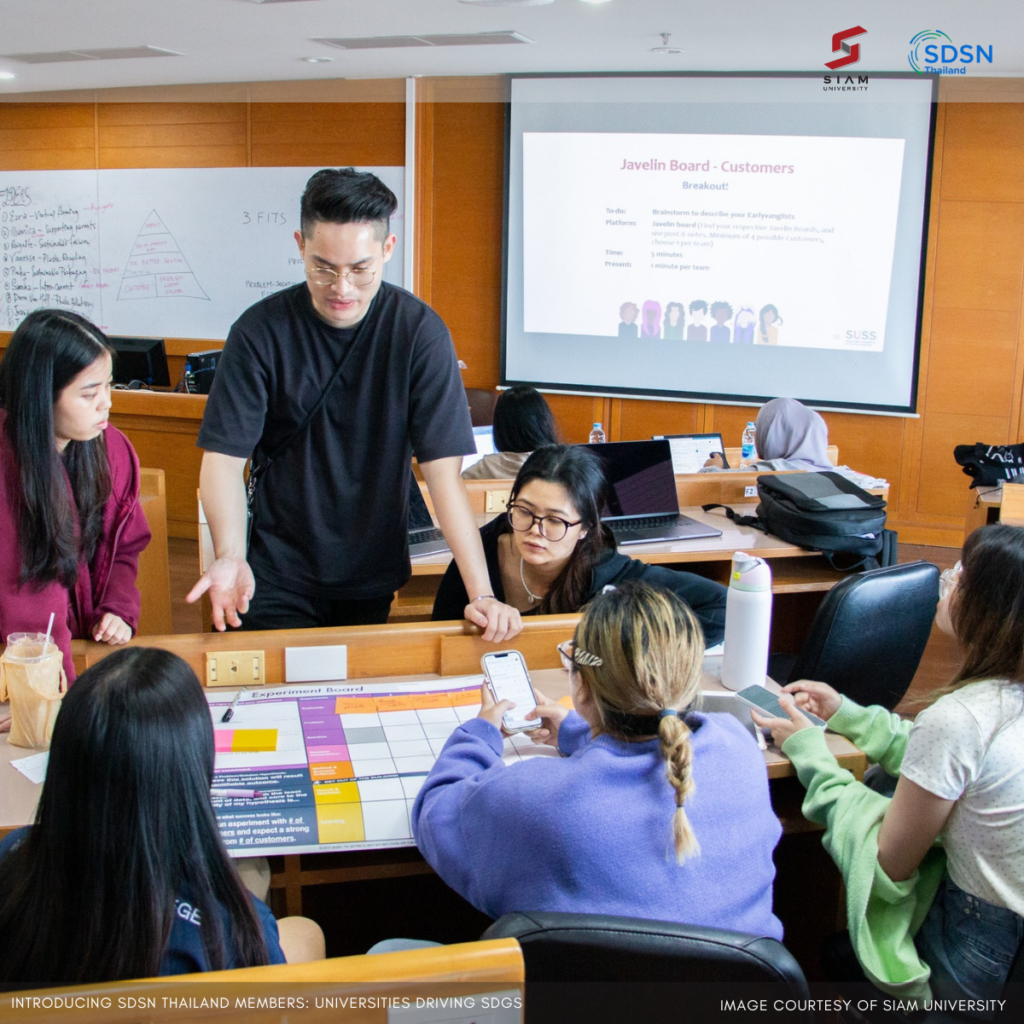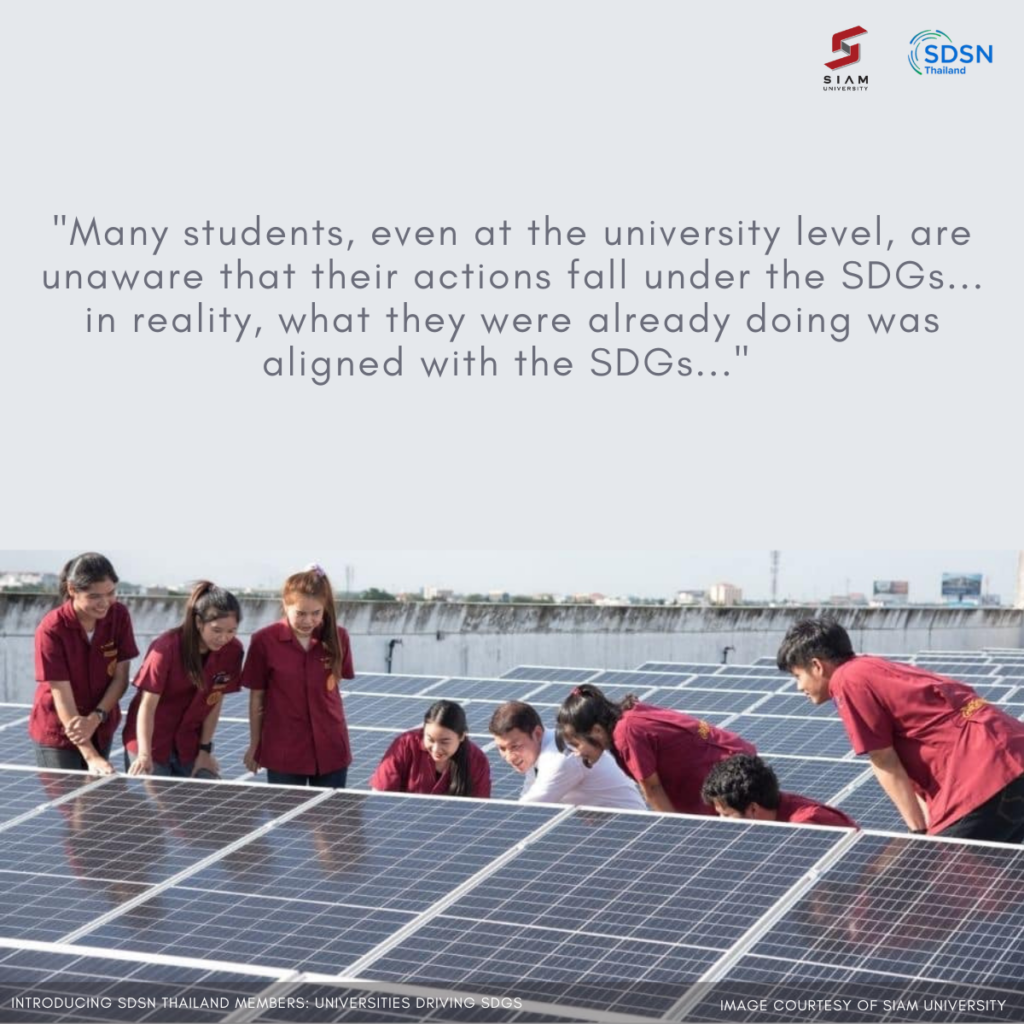
Empowering the Next Generation: Measuring Sustainability Literacy in Thai Higher Education
In a world racing towards the ambitious 2030 sustainability goals, the role of higher education in cultivating environmentally and socially conscious citizens cannot be overstated. This insightful interview delves into pioneering research conducted at a Thai higher education institution, driven by a fundamental question: how well-equipped are incoming university students with the foundational knowledge and understanding of the Sustainable Development Goals (SDGs)? Motivated by their own experiences teaching SDG-related courses, the researchers embarked on a journey to assess the sustainability literacy of first-year students, uncovering surprising realities and paving the way for transformative changes in curriculum and pedagogy.
SDSN Thailand: Why is it important to promote sustainability literacy for students in Thai higher education institution? What is the main reason for conducting this research?
Prof. Chanita: Everyone has sustainability goals set for 2030, and we only have a few years left. We are interested in conducting research in this area because we are teaching courses related to the Sustainable Development Goals (SDGs). We have observed and wondered about the knowledge base of first-year university students. It turns out that many students are unaware of the SDGs; some say they have heard of them, but many do not know what they are. This raises the question: if we are to be a university that plays a role in driving these collective goals, we must develop individuals with knowledge and understanding of the SDGs, as well as literacy, which consists of skills, knowledge, attitudes, and performance.
If we are to develop youth who are our future and take responsibility for the SDGs, what level of Knowledge, Skills, and Performance (KSP) do they possess? This will be the basis for conducting this research. Additionally, Siam University will be revising its general education curriculum, allowing us to understand the baseline of students’ sustainability literacy.

SDSN Thailand: What do you think are some of the challenges during the conduct of this research?
Prof. Chanita: Initially, before conducting the research, we did not have any tools. There is existing research on sustainability literacy from the UN, which is in English and referred to as the SURI test that measures awareness. We thought it might not be applicable to our context because it is in English and was conducted by the UN, which compared results with many other countries, but Thailand did not participate. It is interesting to consider which of the 17 SDGs we are doing well in and which ones we are lacking in, as knowing where we fall short will allow us to improve in those areas.
At that time, without any tools, we had to develop our own. This research article is not our first; we have been developing it for several years, but it still did not meet our expectations, so we gradually improved it. We are confident that our research is of high quality and supported by theory because we reviewed the literature to see if anyone had conducted research on sustainability literacy. We found that most of the work done so far has focused on key performance indicators of sustainability, particularly a lot from Arizona State University. We reviewed their literature, which includes about 7-8 skills related to key competencies. We used this as a framework to determine what key competencies are necessary for measuring sustainability literacy, including knowledge and performance. This serves as the baseline supported by a theoretical framework.
SDSN Thailand: What are some of the tools you used to conduct this research?
Prof. Chanita: In the early years of conducting this research, we felt that we continuously improved the research tools until the students we interviewed and gathered information from understood them. Eventually, this led to the set of tools used in this research project. However, we are still not entirely satisfied because the knowledge assessment reported this time is merely an evaluation of self-perception; it does not truly measure actual knowledge.
In the next phase of our research, we are discussing developing a tool to measure knowledge, not just perception. This idea aligns with what the UN is doing, as they are also revising the SURI test. They have received criticism that their research is more focused on awareness, so they are changing the SURI test into a task-based format. We recently met with them and asked if it would be possible to implement this in Thailand. They informed us that there are language issues since it is in English and French. When we asked if it could be translated into Thai for students to use, they said it wouldn’t work.
This issue presents an opportunity for us to pursue further development because it would allow us to create a more standardized tool for assessing knowledge and various key competencies. Currently, our work primarily involves self-perception, which we have developed ourselves, but it still has weaknesses. Nonetheless, it covers the initial aspects of our research adequately.
SDSN Thailand: What are some of the profound research findings?
Prof. Chanita: We found from our initial research that students should have been learning about sustainability since high school, as there are programs at the secondary school level focused on the SDGs, such as various eco schools. The Ministry of Education is the main ministry responsible for SDG Goal 4, which is part of the mechanism driving the SDGs assigned by the National Economic and Social Development Board. This implies that students should already possess some knowledge; however, it turned out to be lower than expected. We wondered what needs to be done to achieve the SDGs by 2030 since students’ knowledge is significantly below target. The students themselves admitted that before attending university, their knowledge about the SDGs was minimal. In terms of knowledge, they scored only 1.40 out of 5 on our research tool, but after learning at the university level, their score increased to 3 out of 5. We still think it’s concerning that they were unaware of the SDGs during high school; they might have been engaging in related activities without realizing they were related to sustainability. This indicates that their awareness is below the target level.

SDSN Thailand: How will the findings and implications from this study help accelerate the transformation of Thai higher education institutions toward sustainable universities?
Prof. Chanita: The significant implication is that most students are engaging in activities or actions that drive the SDGs, but they do not realize that what they are doing is related to the SDGs. Many students, even at the university level, are unaware that their actions fall under the SDGs. During our data collection for the research, when we asked them to identify which SDG a particular teaching activity belonged to, or when presenting a project proposal, we inquired which SDGs their projects addressed. Many students thought this was an additional burden on their workload, but in reality, what they were already doing was aligned with the SDGs.
We don’t necessarily need to label it as an SDG; for example, if we are working on an innovation project, that corresponds to SDG 9. However, the terminology can be confusing. They may refer to it as “innovation” rather than calling it an SDG. We believe that this knowledge exists within the curriculum, but students are not aware that this is what is referred to as an SDG. There is no need to separate these projects out; they are inherently connected to the goals.




